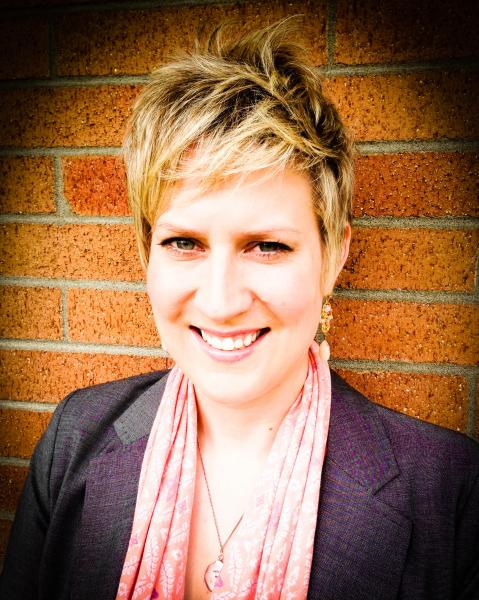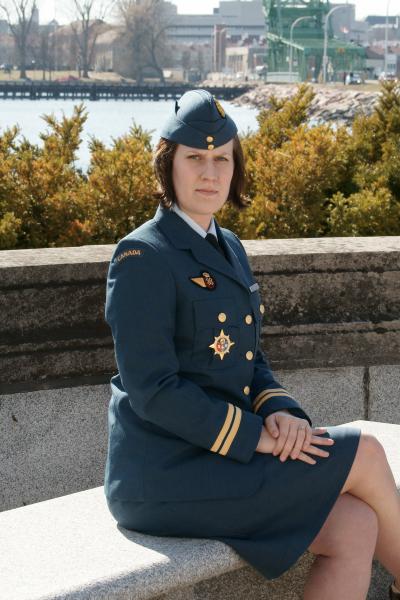Guest Post for Remembrance Day by Kelly S. Thompson: I often reflect back on my own service during this time of year, thinking of my friends and fellow comrades. Inevitably, my mind turns to the women I worked with, those fellow trailblazers, bravery-laden females who refused to believe we were operating in a man’s world or rather, chose to fight against that notion.
 Guest Post for Remembrance Day by Kelly S. Thompson.
Guest Post for Remembrance Day by Kelly S. Thompson.
Remembrance Day is a time to honour and remember those who serve and have served in the Canadian Armed Forces, and like most Canadians, I do just that each November 11th. I am a veteran, a former Logistics Officer in the Canadian Armed Forces, medically released just a few years ago after an injury. You could say the military is in my blood, because I’m the fourth generation of my family to serve, the first woman, so for me Remembrance Day holds special meaning.
I often reflect back on my own service during this time of year, thinking of my friends and fellow comrades. Inevitably, my mind turns to the women I worked with, those fellow trailblazers, bravery-laden females who refused to believe we were operating in a man’s world or rather, chose to fight against that notion.
The Canadian military is made up of just fifteen percent women, only two percent of those in combat trades, and although I recognized my minority status while I served, it didn’t bother me at the time. I was convinced, as a 21-year-old newly minted officer, that I would be taken seriously for my credentials, education and leadership ability. It didn’t occur to me that my blonde hair, propensity for giggles and double D breasts would be something to overcome. I look forward to a day when we no longer have to talk about gender imbalance in any workplace and when women are encouraged and supported in whatever job they have passion for.
For the most part, my fellow troops welcomed me with open arms. But what became glaringly obvious was that female peers were few and far between, especially in combat trades.
“There are a number of reasons these numbers are so low and many of them suggest that culture, tradition and bureaucracy create significant barriers to the success of most women for qualifying and then succeeding in the combat arms,” says Beth Freeman, director of Sisters in Arms, a documentary about women in combat roles in the Canadian Armed Forces.
It’s true that the military has an “old boys club” atmosphere, in which raunchy humour and masculine nature reign supreme, making some females uncomfortable with a feeling of little recourse for fear of being shunned by their peers and pressured by the soldier team mentality to keep quiet.
“I can only speak to the combat arms where there is a pervasive hyper masculine culture and women have to prove themselves first as women and then as soldiers,” says Beth, who interviewed several females who serve or have served in combat roles.
For many women in the military, the solider camaraderie that creates a sense of unity can also serve as a muzzle on the voice of feminism.
 Some argue that the military gender imbalance is due to it historically being a male-dominated workplace, however, women have been on the forefront of military service in a variety of roles for as long as man has been at war. The military has come a long way in supporting women in the Forces, and Canada was one of the first countries to allow women in combat positions and support equal rights for gay and lesbian partners. We have a lot to be proud of as a country and as a military, but we still have a long way to go for a force in which women don’t have to work twice as hard to prove their soldier status.
Some argue that the military gender imbalance is due to it historically being a male-dominated workplace, however, women have been on the forefront of military service in a variety of roles for as long as man has been at war. The military has come a long way in supporting women in the Forces, and Canada was one of the first countries to allow women in combat positions and support equal rights for gay and lesbian partners. We have a lot to be proud of as a country and as a military, but we still have a long way to go for a force in which women don’t have to work twice as hard to prove their soldier status.
I put up with a lot while I was in the military. Some of it was harmless, and thinking back, some of it bordered on harassment. But I also stood up for what I believed in, fought for what I felt was important, and sought to prove that femininity was not a curse but an asset. As a woman, I brought alternative views, differing opinions and a new kind of problem solving. My troops came to respect me as a leader, not because I was a woman or because my rank as an officer demanded inherent respect.
This Remembrance Day, I feel uniquely in tune with not only what it means to be a woman, but what it means to be a soldier. When in uniform, I don’t want to be seen for what’s underneath. I want to be seen as a veteran, a title I earned the same way as all the men.
Tell us what you think. Despite all the positive change, how will women achieve full equality in the military? Is it possible? What can the military do to promote that equality? What attributes do you feel women add to this kind of workplace?














